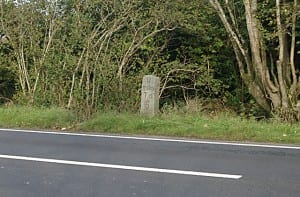My first GS5 progress report represents another PhD milestone. This doctoral research looks at embedding digital scholarship into teacher education programmes. The rationale is the increase in virtual learning environments across the sector in the past decade and the drive towards flexible work-based modes of online learning within higher education at the present time. Academic and professional service staff have historically been unsupported in developing digital ways of working yet attention to digital scholarship, and having individual confidence and competence with digital literacies, is essential if virtual environments are to support quality teaching and learning experiences.
The PhD page of this blog contains my reflective journal since changing supervisors earlier this year. I have found the process of blogging an essential motivator and opportunity to record my background reading. On the advice of my supervisor, this literature has broadened to include the social impact of technology over the past century, not only from an academic perspective but also how technology has been represented within art, fiction and film. I have found this process useful not only in contextualizing the development of the internet and world wide web but also in understanding human responses to technology, in particular the roots of resistance in areas where technology is challenging traditional practices such as education.
I am currently looking at the literature on digital scholarship in order to better locate its role within the university and identify the effect it has on teaching and learning. My methodology has shifted from a qualitative approach through open ended questionnaires and interviews with staff to an action research approach. This will use my tutoring practice on my 30 credit M Level CATS module, Teaching and Learning in a Digital Age (TELEDA-PG) which is delivered and assessed entirely online. The module aims to support digital scholarship and literacies through giving staff the experience of being an online student exploring the different element of virtual education including pedagogical approaches to learning online, resources, communication, collaboration, assessment and feedback. The module is currently being piloted with a group of critical friends with plans to recruit from internal staff twice a year from September 2013.
The nature of working in digital environments involves ongoing CPD in order to keep up to date with changes in internet based tools and media. This module is offered as part of the university’s portfolio of teacher education programmes and will need to be inherently organic with the capacity for adapting to external digital changes as well as student/tutor evaluations. Bryman (1989) says change is seen as a useful way of learning how something works and as TELEDA has multiple theoretical and practical levels, it has the potential to be a useful subject for an action research methodology. Denscombe describes Action Research as being essentially involved with practical issues and arising from activity in the ‘real’ world (Denscombe: 125) so action researchers focus on ‘aspects of their practice as they engage in that practice’ (Denscombe: 128) Integral to the module is a stress on critical reflection and the application of the course principles to individual practice. Both tutors and participants are encouraged to adopt and share professional self-development through critical self-analysis (Schon 1982) and as tutor plus action researcher I would be well placed to enhance the reflective process through research techniques. I believe this situates action research as a methodology particularly well suited for my practice-based doctoral research. I will continue to develop this as a viable methodology during the rest of this academic year, looking at how best to involve course students/staff in the action/reflection cycle, evaluating the influences of action, and disseminating and sustaining ideas and actions in the light of these evaluations.
Bryman, A. (4th edition 2012) Social Research Methods OUP Oxford.
Denscombe, M. (4th edition 2012) The Good Research Guide: For Small-scale Social research projects. Open University Press.
Schön, D. (1983) The Reflective Practitioner, How Professionals Think In Action, Basic Books.
Milestone image from http://www.geograph.org.uk/photo/66925

